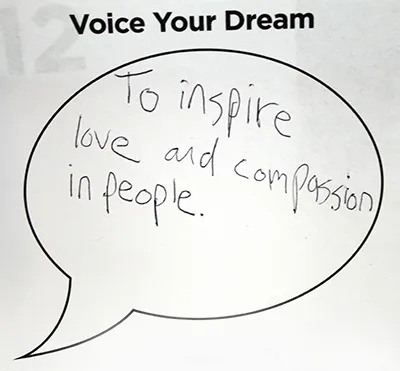Treat Others How They Want to Be Treated
Category:
Culture
Read time:
6 min
Written by: Jessica Grace
At Clef, our values aren’t just words on a wall—they guide how we work, make decisions, and interact with each other. One of our core principles is simple but powerful:
"Treat others how they want to be treated."
The Power of Perspective
In an ideal world, we’d always feel understood. Every conversation would spark connection and trust, creating a cycle of positive reciprocity. But in reality, communication is messy. Misunderstandings happen, even when we care deeply.
Too often, we assume others see the world as we do. Even with the best intentions, we miss the mark. Identifying our own needs is hard enough—understanding someone else’s can feel impossible.
That’s why this value exists: to remind us that true empathy isn’t about guessing—it’s about asking, listening, and adapting.
Beyond the Golden Rule
Most of us grew up hearing "Treat others as you want to be treated." But that assumes what works for you works for everyone.
One word changes everything.
"Treat others how they want to be treated."
This shift requires active empathy. It’s not about assuming—it’s about understanding. To do this, we need to:
- Listen for needs. If we don’t know what someone values, we ask.
- Recognize our blind spots. People experience the world differently than we do.
- Communicate clearly. Expressing our own needs makes space for others to do the same.
Breaking the Cycle of Miscommunication
Western culture often frames conversations as debates—someone’s right, someone’s wrong. This instinct to defend ourselves can turn small missteps into full-blown conflicts.
Marshall Rosenberg’s Nonviolent Communication (NVC) offers a different approach. Instead of reacting defensively, we focus on:
✅ Observing without judgment
✅ Identifying our feelings and needs
✅ Making requests instead of demands
When people feel free—not forced—to act with kindness, trust grows. There’s no resentment, no power struggle—just genuine connection.
Empathy in Action
B, our CEO, explains it best:
"The core of this value is empathy and understanding that the people we interact with are not like us. It’s critical for building a diverse team and creating products for a non-technical audience."
Jesse adds:
"It’s hard for people to communicate how they want to be treated. There’s a joint responsibility—sensing when we can do better and creating space for others to tell us."
This applies to teamwork, leadership, and product design. When we prioritize their perspective, we build software—and relationships—that truly serve people.

* This is a core tenet of nonviolent communication. Although, I do not have the space to explore this idea more fully here, it is worth thinking about and reading up on. Learning NVC has improved my life by improving the quality of almost every relationship in it. The most successful teaching tool of NVC in my opinion, short of attending an in-person workshop, is the NVC Training Course.
Making It Real
Living this value takes practice. It means:
🔹 Checking assumptions before acting
🔹 Asking, rather than assuming, what people need
🔹 Communicating our own needs openly
🔹 Creating space for others to do the same
At Clef, this isn’t just a philosophy—it’s how we build trust, strengthen our team, and create thoughtful products.
Because when we really see each other, we all win.
